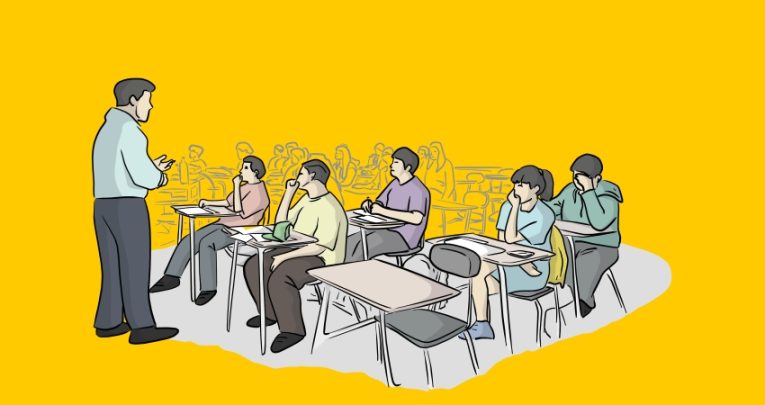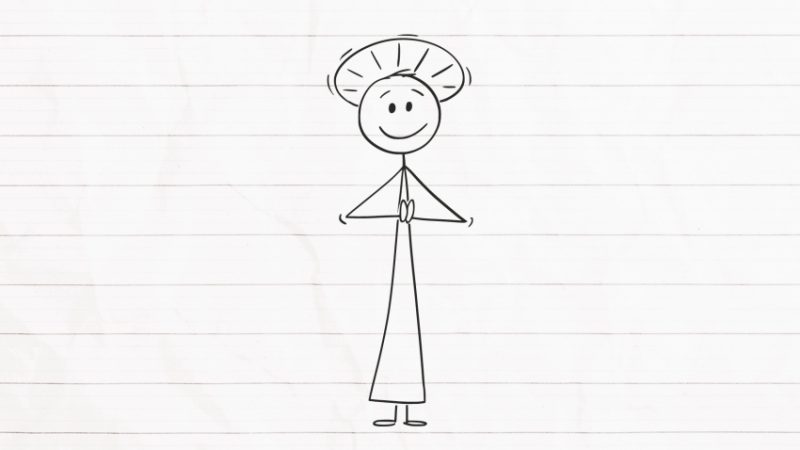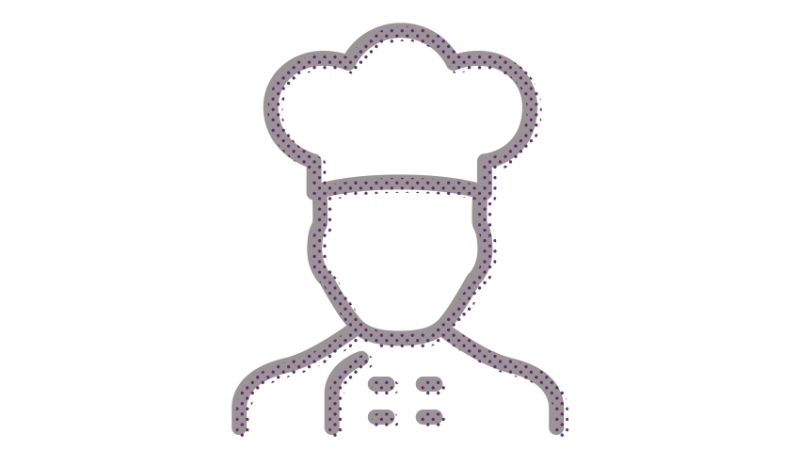Knowledge rich curriculum – Why ‘knowing’ is not enough

A knowledge-rich curriculum won’t amount to much if students can’t meaningfully apply what they’ve learnt, advises Matt MacGuire…

“Knowing is not enough; we must apply”
– Bruce Lee
Children need to know things. The knowledge rich curriculum has been a sensible and noble aspiration for many schools over the last few years. Knowledge isn’t snobbish or ugly, and it’s not the enemy of creativity (since you can’t be creative in any field without knowledge of what’s already been created by others).
Teachers who call themselves ‘progressive’ are wrong to envision rows of Victorian children regurgitating barren, arid facts to satisfy Gradgrindian didacts. That’s not what a knowledge rich curriculum looks like when it is enacted properly. When it is enacted badly, though, the progressives may have a point…
Closed questions
The teaching of knowledge can be quite straightforward, especially where the knowledge being taught is considered objectively true. The inner angles of a triangle add up to 180°. Chlorophyll is green in pigment. Macbeth is a tragic hero.
Those declarative sentences can be easily translated into closed questions (‘What colour is chlorophyll?’) so that the knowledge can be tested. Many teachers have started using knowledge organisers as a basis for this kind of simple, direct testing.
Students memorise the information on the knowledge organisers first, and are then quizzed on that declarative knowledge. This is a good thing. Knowing the most valuable information about a given topic is infinitely better than not knowing the most valuable information about a given topic.
There is, however, a danger in the simplicity of this approach to teaching and testing knowledge. It’s easy for teachers to do, producing routines that are easy for students to follow, but it can get very formulaic.
The lack of novelty in, say, regular retrieval practice techniques and ‘do now’ activities can be disengaging. Routine is important, but it has its limits. Another problem is that teachers can fall into a comfortable habit of delivering knowledge and then testing it, whilst becoming too reliant on a centrally prepared, knowledge rich curriculum.
Extended application
Consequently, skilful and detailed application tasks can become increasingly alien and intimidating, for both students and teachers. The unidimensional application of knowledge in a typical retrieval practice activity is really a simple memory test. The application of knowledge in a more complex task – such as the writing of an essay, or navigation of a detailed diagram – requires much more mental effort, sustained attention and classroom time.
Extended application also demands from students sustained focus and attention, plus the ability to ignore distractions and the resilience needed to engage in tasks that entail mental struggles. They probably won’t get it right first time, and with every repeated effort, what resilience and mental stamina they have will further diminish.
Brute force memorisation of facts doesn’t call on the same kind of mental dexterity. In lessons where students’ attention is wavering, in which teachers and students are becoming tired, the easy choice may well be to stick with declarative knowledge and retrieval practice.
Bang for our buck
Testing knowledge via only one straightforward method doesn’t develop true knowledge, though with enough repetition it can certainly create inflexible knowledge. By that, I mean knowledge that learners are only trained to apply wthinin a single context, or in response to a given stimulus. The value of a single item of knowledge is therefore significantly restricted. We can give its utility a numerical value of 1.
Hypothetically, if we can show students how to apply that same single unit of knowledge in three different ways across three different contexts, then its utility could increase to a value of 3. We get more bang for our buck, more application from our knowledge. This has to be the way forward since application of knowledge should be our overall goal.
After all, what else is knowledge for, if not for us to apply it in creative and intelligent ways to a variety of questions, challenges and problems? Students need to build a body of knowledge, and then place that declarative knowledge in long term memory. Otherwise, any attempts at academic work simply become naïve guesswork.
Letting students down
So, what does students applying their knowledge look like in practice? Well, there’s one obvious answer to that question – they need to practise applying their knowledge in a way that emulates the final assessment conditions. They need exam practice.
At this point, I can almost hear the progressive-aligned readers among you groaning, ‘My school is not an exam factory! We teach students so much more about good character, and empathy, and…’ And that’s commendable. Schools should do that.
But they must also fulfil their core purpose, which is to educate. Students mustn’t be let down in their exam preparation by well-intentioned, yet stubborn ideologues prepared to put character education before academic success.
This is especially true in underprivileged schools. If these students are going to have a fair chance, then they need to be hyper-prepared for their exams. I speak from personal experience here. I wish my teachers had emphasised exam practice. Hell, I wish I’d actually seen what an exam paper looked like before the exam!
Any subjective notions around what constitutes good character, however passionately held, will pale into irrelevance if students don’t achieve academically. Character can continue to change over a lifetime of experience. Exam grades are forever.
Snivelling and cowardly?
The first kind of practice to build into the curriculum is therefore that which emulates exam conditions. This will be much the same from subject to subject, though students will, of course, answer in different ways – through equations, calculations or the drawing of graphs; by interpreting data tables; choosing between multiple options or drafting essays, to name but a few.
Knowing how to apply knowledge to exam questions is an essential part of your students’ curriculum. At a certain point, you do have to teach to the test.
There are many teachers out there who would object to this sentiment, and it’s worth thinking about why that is. Some teachers will discuss exam preparation as though it were some snivelling and cowardly act of conformity; a form of submission before the oppressive demands of the DfE and assorted exam boards. Needless to say, I think this is a silly way of thinking about examinations.
When you teach students to ‘pass exams’, you causally link the extrinsic target of a strong examination result to students’ successful learning and application of the knowledge and skills that said exam will test. The exam result will itself be a proxy for that successful learning.
I’d go so far as to say that complaining about ‘teaching to the test’, or ‘working in an exam factory’ is wrongheaded, and perhaps even lazy. After all, the process of fully explaining, modelling, supporting and then assessing exam-style work is intensive. It demands lots from teachers and students alike, and I can see why both might seek to avoid the heavy work involved, but that’s just tantamount to sticking one’s head in the sand. Failure to apply is failure to prepare.
Questions upon questions
That said, setting exam practice every lesson would be the surest way to turn students off your subject completely. Questioning and classroom discussion – when managed properly – are both excellent ways of allowing students to apply what they have learnt. The best teachers will do this regularly, and insist that their students use the vocabulary of the subject in their responses.
This is an excellent opportunity for public praise and modelling when students get it right, and useful for corrective coaching when students reveal a misconception through their spoken contributions. Public corrections, when delivered sensitively, will also disabuse other students of the same error at the same time.
The beauty of spoken interactions in class is their fluidity. Questions can lead to other questions. Students can become fascinated and intrigued. The teacher can share some interesting item of hinterland knowledge – perhaps some exciting contemporary development in psychology, or economics, or sociology.
Conversation presents a chance to both apply subject knowledge and really bring your subject to life.
Matt MacGuire is a deputy headteacher; this article is based on a post originally published at his blog, Ten Rules for Teaching











